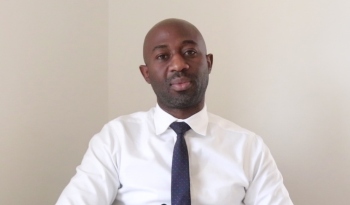Personal finance and financial goal setting in Kenya is a popular topic in December – as many Kenyans begin to reflect on the year that was and create savings goals for the year ahead.
Typically there is an increased pressure to spend in the last quarter of the year, with the Christmas holidays and the financial obligations that occur in January as schools reopen. A survey done by WorldRemit in August shows that, on average, Kenyan families paid more than 1.75 times their household monthly income on school supplies, amid the global inflation that has affected the cost of sending children to learning institutions.
How Diaspora Remittances have shaped Kenya’s economy
While every person’s financial situation is unique, it is helpful to learn and put into practice the unchanging principles of finance that can help you manage your money more effectively.
When it comes to improving finances, Kenyans tend to focus on the most obvious thing, which is increasing income. However, while making more money is critical to financial growth, it is not an option for everyone nor is it the most important factor in long-term financial success. On the journey to financial freedom, our daily habits matter more than our income.
The following are four savings tips from leading global payments company WorldRemit.
1. Make an inflation-friendly budget and savings plan
Revisit your long-term and short-term financial goals. Are you saving for emergencies? Education? A new car? Consider your financial situation and the current economy, then decide what needs to be prioritized and what can be parked.
Once you’ve done this, create an inflation-friendly budget by setting (or resetting) a regular savings amount that is achievable, given your current expenses.
To do this, you’ll need to have a clear picture of your regular costs and spending habits, e.g. rent, monthly bills, or remittances. While these must be prioritized, discretionary spending can also be factored into budgets. That is if these extras don’t go over budget.
While it is important for remitters to make sure they are making daily ends meet for themselves and their families, setting aside a portion of regular income for the future can go a long way to creating a solid safety net and delivering a better quality of life.
2. Pay yourself first, automatically
Once you’ve decided on your savings plan, set up your bank account to automatically transfer funds from your checking account to your savings account on a regular basis. Set this up so that you ‘pay yourself first, every time your salary comes in – just set and forget.
3. Pay down debt
When interest rates are high, like they are now, debt can seriously weaken the strength of your active saving efforts. Consider regularly allocating a portion of your budget to paying off any debt you owe – not just the interest.
While this is not always possible – especially when times are tight – it is important to have a plan in place to prevent accruing interest and increasing debt even further.
Joy Muthengi Opens Up On Who She Is Dating, Otile Or Mariga?
Things to consider: List the amount you owe and the form of the debt, prioritize your debts from highest to lowest interest rates, and make a repayment plan when paying off your debt.
4. Be smart about the costs of sending money back home
Sending money overseas costs money, too. To make every dollar you spend count, shop around when choosing a service – both competitive exchange rates and minimal transaction fees are important.
Look at the whole picture instead of just one moving part. For example, physical exchange services typically have better exchange rates but higher transaction fees, so it is worth considering online alternatives.
You can also take advantage of discounts and promotions that can be easily found online. WorldRemit, for example, offers zero fees with new users’ first three money transfers.
Your financial choices during your first year of migration can have a lasting impact on your life. Therefore, it is important to make good decisions early on, so you can reap the benefits later on.








